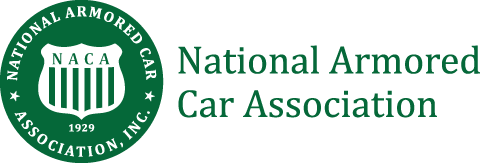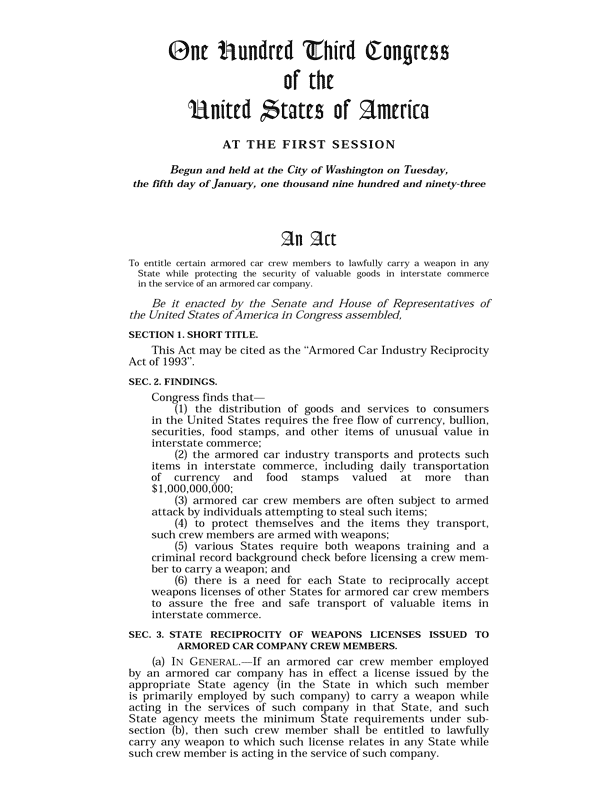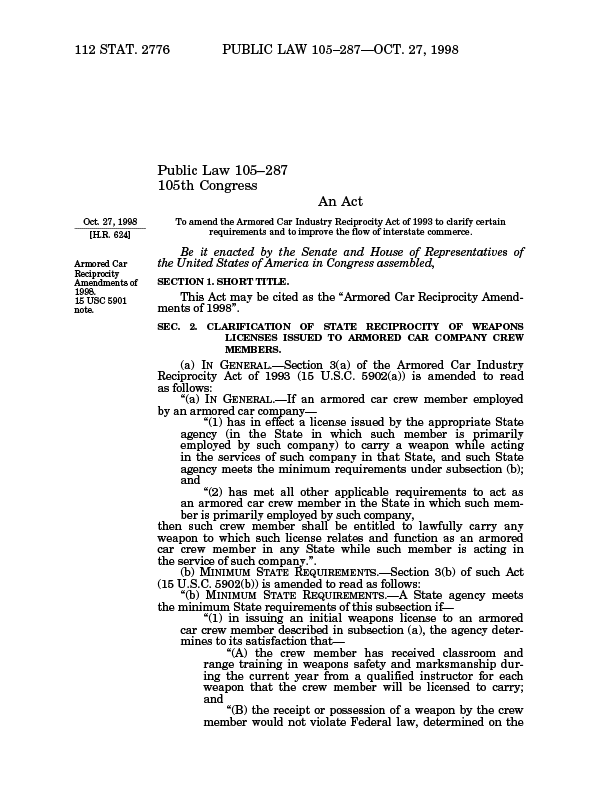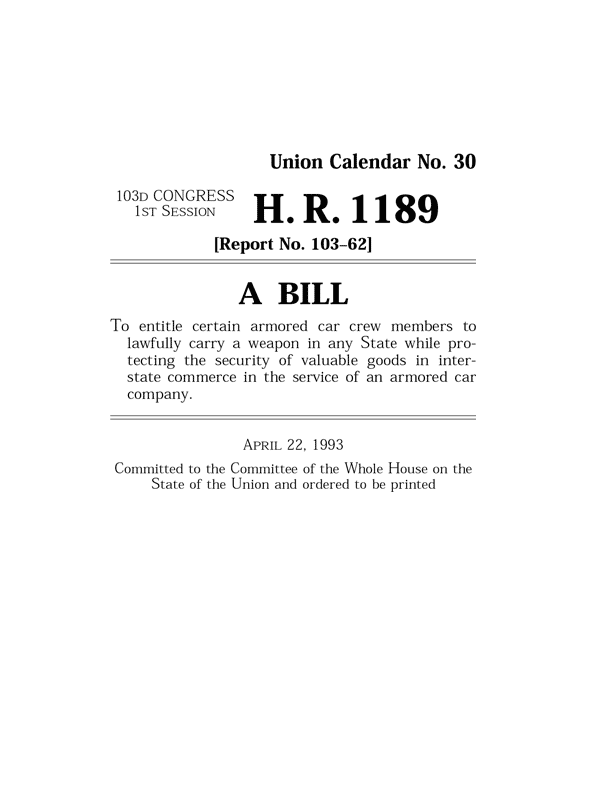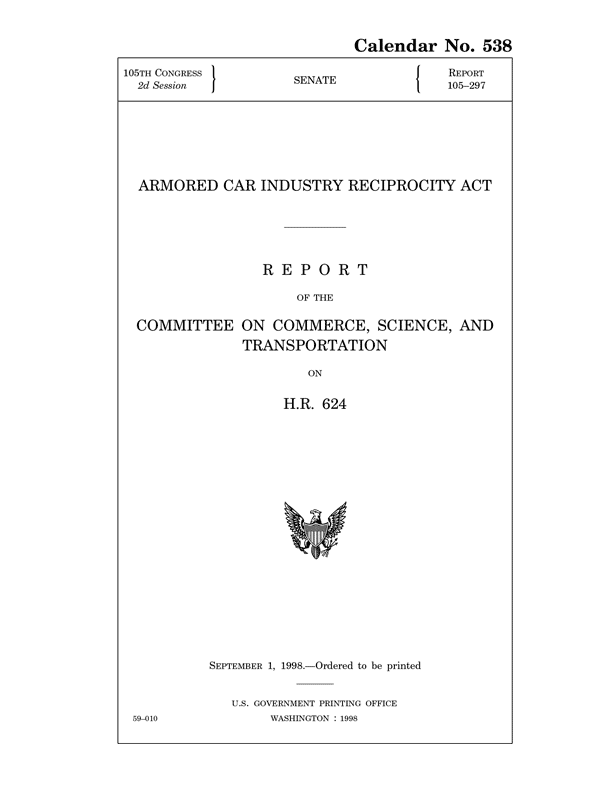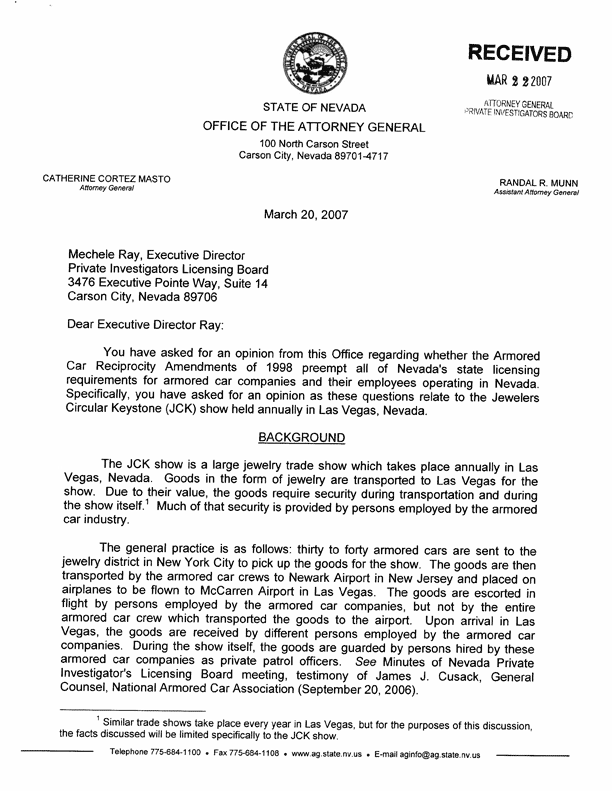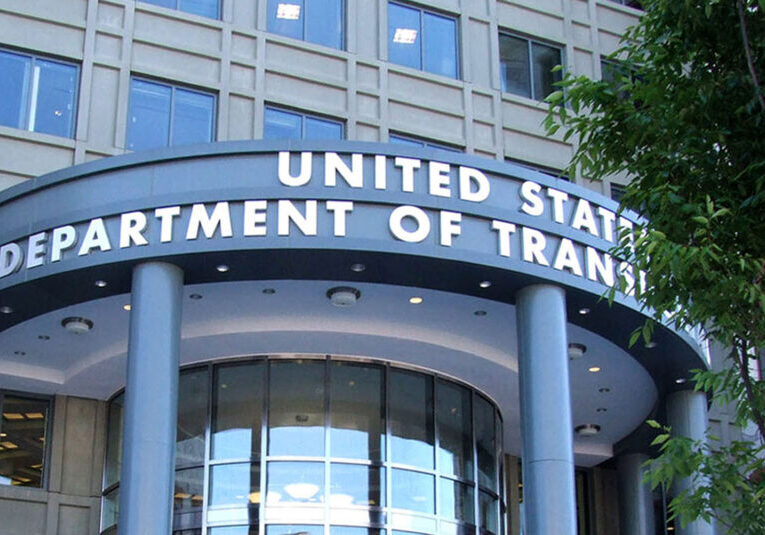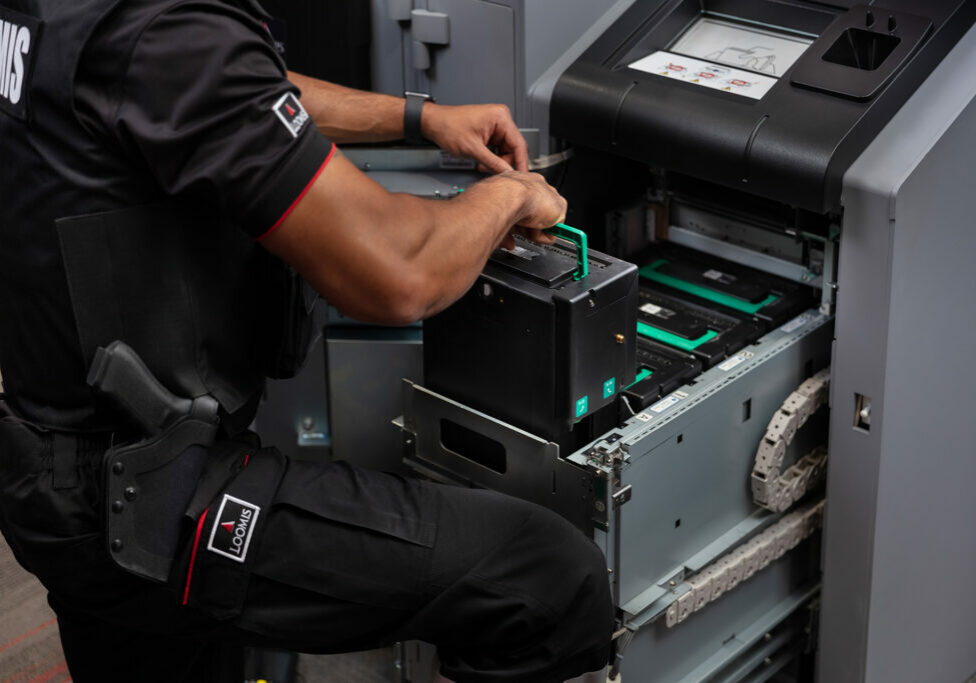Armored Car Industry Reciprocity Act
Prior to passage of the Armored Car Industry Reciprocity Act of 1993, the industry was plagued with problems due to findings that, among other things, armored car employees often placed themselves in violation of state weapons laws and were vulnerable to criminal charges because the regulation of permits to carry firearms is handled at the state level.
Citing a “need for each State to reciprocally accept weapons' licenses of other States for armored car crew members to assure the free and safe transport of valuable items in interstate commerce”, Congress passed the Armored Car Industry Reciprocity Act of 1993. Congress amended the Act in 1998 to address a number of technical problems and drafting ambiguities that had come to light since the original law had been passed and to ensure that Congressional intent “in enacting the original Act to lift the burden on interstate commerce created by the diverse States licensing schemes” was realized.
To ensure safe and secure transport of cash and valuables throughout the United States , this act entitles certain armored car crew members to carry weapons, for which they have licenses, into any other state while in the service of an armored car company. An armored car crew member, who is employed by an armored car company, must have
- a license issued by the appropriate state agency where he is primarily employed to carry a weapon while acting in the services of his employer in the state, and the state agency must meet the minimum requirements under the act; and
- met all other applicable requirements to act as an armored crew member in the state in which the member is primarily employed by such company.
The Reciprocity Act is critical to the armored car industry. While laws governing when and where a person can carry a firearm differ from state to state, our members have an obligation to transport cash and valuables safely and securely throughout the United States irrespective of location. Safety—including firearms safety—is the top priority for NACA members. As part of protecting armored car guards, the property they transport, and the general public, NACA member companies provide their employees extensive training on how to mitigate the unique risks facing armored car operations, including the safe use of firearms.
More information about the Reciprocity Act is below.
More on the Armored Car Reciprocity Act of 1993
More information about the Reciprocity Act and the Armored Car Reciprocity Amendments of 1997 including the House Committee Report, the Senate Committee Report and an opinion by the Nevada Attorney General on the application of the Act are set forth below.
